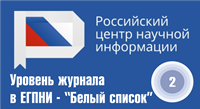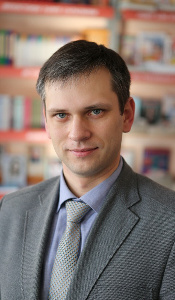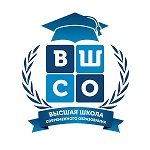ИДЕИ ИНКЛЮЗИИ ДЛЯ ОБРАЗОВАНИЯ ОДАРЕННЫХ ДЕТЕЙ
Аннотация
Цель. Данная статья посвящена теме актуальности использования идей инклюзии для образования одаренных детей. В центре внимания автора особые образовательные потребности одаренных детей.
Материалы и методы. Проведенный сравнительно-сопоставительный анализ понятий позволяет понять причины, почему одаренные дети нуждаются в инклюзии. Понятие «потребности» означает общие нужды; понятие «образовательные потребности» подчеркивает значимость общего образования для развития одаренного ребенка; понятие «особые образовательные потребности» раскрывает специфику одаренных детей, требующей инклюзии для преодоления дефицитов.
Результаты и их обсуждение. В статье обращается внимание на социально-психологическую обусловленность инклюзии: проявление одаренности у ребенка сопровождается особенностями, которые вызывают неприятие в обществе и трудности социальной адаптации. Обосновано, что инклюзивное образование должно быть обязательным компонентом общего образования, поскольку инклюзия необходима для направленного «включения» одаренного ребенка в различные виды активности, получения опыта самостоятельного действия, взаимодействия и коммуникации со сверстниками и взрослыми.
Область применения результатов. Делается вывод, что возможно использовать ресурсы инклюзивного образования в обучении одаренных детей. Современная российская школа нуждается в теоретико-методологических разработках применения идеи инклюзии для образования одаренных детей.
Скачивания
Литература
2. Bayborodova L.V., Kirichenko E.B., Krivun’ M.P., Tarkhanova I.Yu., Kharisova I.G. Dopolnitel’noe obrazovanie detey s osobymi obrazovatel’nymi potrebnostyami: uchebnoe posobie [Additional education for children with special educational needs] / ed. L.V. Bayborodova, A.V. Zolotareva. Yaroslavl’: RIO YaGPU, 2014, 315 p.
3. Gusev S., Privalova G., Lopatin N. Some Aspects of Socio-Pedagogical Activity with Gifted Children. Professional’noe obrazovanie v Rossii i za rubezhom [Professional education in Russia and abroad]. 2018, no. 4 (32), pp. 111-116. URL: https://elibrary.ru/item.asp?id=36833448 (accessed October 29, 2021).
4. Grebennikova V.M., Shcherbina A.I. Strategiya vklyucheniya inklyuzivnoy obrazovatel’noy sredy s uchetom “indeksa inklyuzii” [The Strategy of Incorporating the Inclusive Educational Environment Based on the “Index Of Inclusion”]. Uspekhi sovremennoy nauki i obrazovaniya, 2016, no. 1, pp. 69-72. URL: https://www.elibrary.ru/item.asp?id=25323998 (accessed October 31, 2021).
5. Ivannikov V.A. Analiz potrebnostno-motivatsionnoy sfery s pozitsii teorii deyatel’nosti [Analysis of the need-motivational sphere from the position of the theory of activity]. Mir psikhologii, 2003, no. 2 (34), pp. 139-145. URL: https://elibrary.ru/item.asp?id=46373938 (accessed October 31, 2021).
6. Kibal’chenko I.A., Abalmasova O.D. Odarennye deti: neobkhodimost’ inklyuzivnogo obrazovaniya [Gifted children: the need for inclusive education]. Aktual’nye problemy spetsial’nogo i inklyuzivnogo obrazovaniya detey i molodezhi: Materialy III Regional’noy nauchno-prakticheskoy konferentsii [Proceedings of the III Regional Scientific and Practical Conference “Actual Problems of Special and Inclusive Education for Children and Youth”]. Taganrog, 2019, pp. 312-315. URL: https://elibrary.ru/item.asp?id=41402565 (accessed October 28, 2021).
7. Knyaginina N.V., Yanbarisova D.M. Podderzhka talantlivoy molodezhi: opyt Rossii i zarubezhnykh gosudarstv [Support of the Talented Youth: Russian and International Practices]. Obrazovatel’naya politika [Educational policy], 2016, no. 4(74), pp. 108-121. URL: https://www.elibrary.ru/item.asp?id=44554552 (accessed October 31, 2021).
8. Krashenskaya A.N. Professional’naya i psikhologicheskaya gotovnost’ pedagoga k inklyuzivnomu obrazovaniyu v Rossii [Professional and Psychological Readiness of the Teacher for Inclusion Education in Russia]. Tribuna uchenogo. 2021, no 2, pp. 330-334. URL: https://elibrary.ru/item.asp?id=45602354 (accessed October 28, 2021).
9. Krylova O.N. Osobye obrazovatel’nye potrebnosti odarennykh detey [Gifted Child’ special Educational Needs]. Materialy mezhdunarodnogo kongressa «Podderzhka odarennosti – razvitie kreativnosti» [Proceedings of the International Congress “Support for Giftedness - Development of Creativity”]. 2014, vol. 2, pp. 216-220. URL: https://elibrary.ru/item.asp?id=22406580 (accessed January 13, 2020).
10. Lubovsky V.I. Osobye obrazovatel’nye potrebnosti [Special Educational Needs]. Psychological Science and Education psyedu.ru, 2013, no. 5, pp. 61-66. URL: http://psyedu.ru/journal/2013/5/Lubovskiy.phtml (accessed January 13, 2020).
11. Mallaev D.M., Bazhukova O.A. Perspektivy razvitiya integrirovannogo i inklyuzivnogo prostranstva v rossiyskom obrazovanii - metodologicheskie aspekty i praktika [Perspectives of Development of Integrated and Inclusive Space in Russian Education – Methodological Aspects and Practice]. Izvestiya Dagestanskogo gosudarstvennogo pedagogicheskogo universiteta. Psikhologo-pedagogicheskie nauki [Dagestan State Pedagogical University. Psychological and Pedagogical]. 2018, vol. 18, no. 3, pp. 76-82. https://doi.org/10.31161/1995-0659-2018-12-3-76-82
12. Nechaev A.V. Sotsializatsiya odarennykh kak inklyuzivnyy protsess [Izvestiya Dagestanskogo gosudarstvennogo pedagogicheskogo universiteta. Psikhologo-pedagogicheskie nauki]. Inklyuziya dlya vsekh 2020: sotsial’naya inklyuziya v sovremennom sotsiokul’turnom prostranstve: sbornik materialov Mezhdunarodnoy modul’noy nauchno-prakticheskoy konferentsii [Proceedings of the International Modular Scientific and Practical Conference “Inclusion for All 2020: Social Inclusion in the Modern Socio-Cultural Space”]. 2020, pp. 25-26. URL: https://elibrary.ru/item.asp?id=44118852 (accessed October 29, 2021).
13. Osnovnye sovremennye kontseptsii tvorchestva i odarennosti [Basic modern concepts of creativity and giftedness]. M.: Molodaya gvardiya, 1997, 416 p.
14. Parts O.S. Sotsial’noe razvitie talanta v usloviyakh inklyuzivnogo obrazovaniya [Social Development of Talent in the Context of Inclusive Education]. V mire nauchnykh otkrytiy [In the World of Scientific Discoveries]. 2013, no 11.7 (47), pp. 172-177. URL: https://elibrary.ru/item.asp?id=21242727 (accessed January 13, 2020).
15. Popov A.A., Glukhov P.P., Averkov M.S. Konstruirovanie inklyuzivnogo obrazovaniya odarennykh obuchayushchikhsya na osnove antropoprakticheskogo podkhoda [Designing Inclusive Education for Gifted Students Based on Anthropo-Practical Approach]. Filosofiya obrazovaniya [Philosophy of Education]. 2019, vol. 19, no 3, pp. 151-164. https://doi.org/10.15372/PHE20190310
16. Sapunova I.V. Deti s ogranichennymi vozmozhnostyami zdorov’ya i talantlivye deti v inklyuzii: napravlenie obrazovatel’noy politiki i vzglyad pedagogov [Children with disabilities and talented children in inclusion: the direction of educational policy and the view of teachers]. Pedagogicheskoe iskusstvo, 2019, no. 2, pp. 31-39. URL: https://elibrary.ru/item.asp?id=42621906 (accessed October 28, 2021).
17. Federal state educational standard]. URL: http://standart.edu.ru/ (accessed November 10, 2021).
18. Federal Law “On Education in the Russian Federation” dated December 29, 2012 N 273-FZ. URL: http://nmcmosobl.ru/files/normzakon/Zakon_Obr29122012.pdf (accessed November 10, 2021).
19. Kholodnaya M.A. Kognitivnye stili: O prirode individual’nogo uma [Cognitive styles: On the nature of the individual mind]. M.: PER SE, 2002, 304 p.
20. Kholodnaya M.A. Evolyutsiya intellektual’noy odarennosti ot detstva k vzroslosti: effekt inversii razvitiya [Evolution of intellectual giftedness from childhood to adulthood: Effect of Inversion in Development]. Psikhologicheskii Zhurnal [Psychological journal], 2011, vol. 32, no 5, pp. 69-78. URL: https://www.elibrary.ru/item.asp?id=16777861 (accessed October 31, 2021).
21. Yuekevich V.S. Odarennye deti: segodnyashnie tendentsii i zavtrashnie vyzovy [Gifted Children: Today’s Tendencies and Tomorrow’s Challenges]. Psikhologicheskaya nauka i obrazovanie [Psychological Science and Education]. 2011, no. 4, pp. 99-108. URL: https://elibrary.ru/item.asp?id=17729608 (accessed October 30, 2021).
22. Hornby G. Inclusive special education: Development of a new theory for the education of children with special educational needs and disabilities. British Journal of Special Education, 2015, vol. 42, no. 3, pp. 234-256. https://doi.org/10.1111/1467-8578.12101
23. Orekhovskaya N.A., Voevodina E.V., Seregina T.N., Raidugin D.S. Inclusive education social problems. Modern Journal of Language Teaching Methods, 2018, vol. 8, no 1, pp. 11-21. URL: https://www.elibrary.ru/item.asp?id=36503649 (accessed 01.11.2021).
24. Mortensen A. Neuropædagogik og inklusionsdifferentiering: Neuropædagogiske perspektiver på inklusionsindsatsen i den danske folkeskole. Aalborg Universitetsforlag. Ph.d.-serien for Det Samfundsvidenskabelige Fakultet, Aalborg Universitet. 2016. https://doi.org/10.5278/VBN.PHD.SOCSCI.00046
25. Ninkov I. Education Policies for Gifted Children Within a Human Rights Paradigm: a Comparative Analysis. J. Hum. Rights Soc. Work, 2020, vol. 5, pp. 280–289. https://doi.org/10.1007/s41134-020-00133-1
26. O’Hanlon C. (Ed.). Inclusive Education in Europe (1st ed.). Routledge. 1995. https://doi.org/10.4324/9780203730409
27. Piske F., Stoltz T. and Machado J. Creative Educational Practices for Inclusion of Gifted Children. Creative Education, 2014, vol. 5, pp. 803-808. https://doi.org/10.4236/ce.2014.510093
Просмотров аннотации: 458
Copyright (c) 2021 Olga S. Parts

Это произведение доступно по лицензии Creative Commons «Attribution-NonCommercial-NoDerivatives» («Атрибуция — Некоммерческое использование — Без производных произведений») 4.0 Всемирная.





































